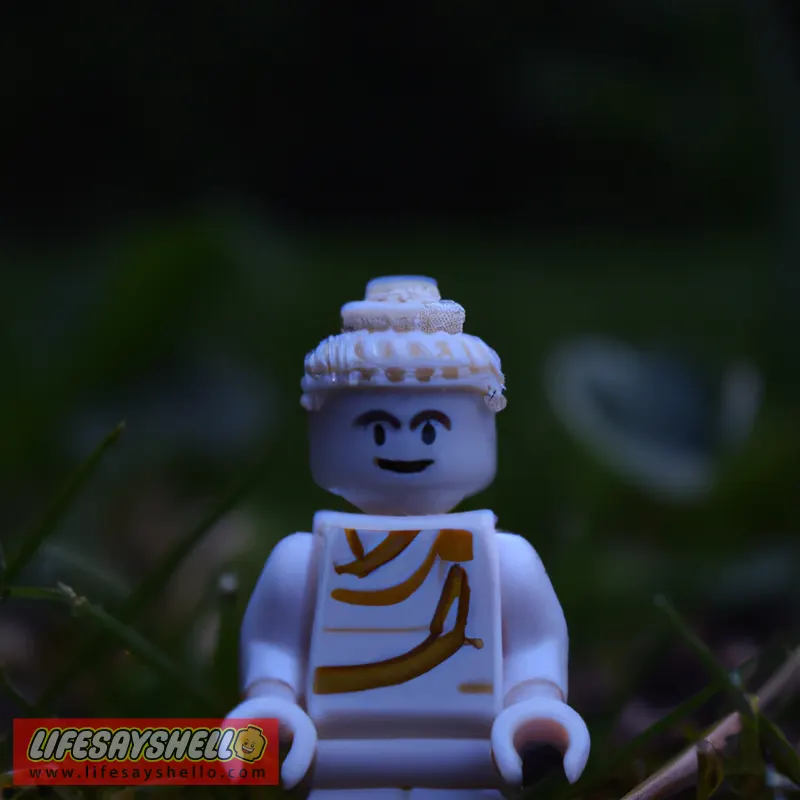Who is the God of Buddhism? Exploring Buddhist Deities

Buddhism is often seen as a nontheistic religion that doesn’t worship any gods or deities. However, many people are surprised to find that Buddhism includes a vast array of divine beings. So who is the Buddhist god?
Ultimately, Buddhism does not focus on worship of an all-powerful creator god. The Buddha himself is not considered a god, but an enlightened teacher. However, Buddhism does include celestial buddhas, bodhisattvas, protectors, and other figures that are deeply revered.
These Buddhist deities represent ideals and virtues that Buddhists strive to cultivate. They serve as beneficent guides, role models, and protectors. So while there is no supreme deity, divine beings do play an important role in Buddhism.
The Buddha is Not Considered a God
Siddhartha Gautama, the historical Buddha, is considered the founder of Buddhism. After seeking enlightenment, he attained nirvana and escaped the cycle of rebirth. The Buddha then spent his life teaching the path to enlightenment to others.
But in Buddhism, the Buddha is not considered a god or prophet. He was a human being who became spiritually enlightened through his own efforts. The Buddha showed that all beings have the potential to awaken and be liberated.
After his death, the Buddha came to be deeply revered by Buddhists for his wisdom and compassion. He is considered a supreme teacher and role model. However, he is not worshipped as a creator god. Buddhists take refuge in the Buddha, the Dharma (his teachings), and the Sangha (the spiritual community).
So while the Buddha is venerated, he is not considered a god who you pray to for salvation. Buddhists look to his teachings and example for guidance on the path towards enlightenment. The Buddha showed that spiritual liberation comes from within, not from an external deity.
Bodhisattvas - Enlightened Beings of Compassion
While the Buddha is not a god, Buddhism does include celestial enlightened beings known as bodhisattvas. Bodhisattvas are beings who have attained enlightenment, but have delayed entering nirvana in order to help others find salvation.
Some of the most important bodhisattvas in Buddhism include:
Avalokiteshvara - The bodhisattva of compassion. He is one of the most revered figures in Mahayana Buddhism and is associated with the famous mantra Om Mani Padme Hum.
Manjushri - The bodhisattva of wisdom and insight. He represents the ideal of cultivating wisdom in order to see beyond delusion.
Tara - A female buddha goddess revered for her swiftness in responding to prayers. She provides protection and offers her guidance to practitioners.
Ksitigarbha - Known for his vow to save beings from hell realms and guide them to enlightenment. He represents determination and commitment to awakening.
Unlike gods, bodhisattvas are not immortal or creators of the universe. They are beings who have perfected certain qualities like compassion, wisdom, power and determination. Buddhists revere these enlightened beings and may pray to them for blessings and assistance on the spiritual path. But they are not gods who one worships for salvation.
Celestial Buddhas
In addition to bodhisattvas, Buddhism includes celestial buddhas that reside in pure heavenly realms. These cosmic buddhas represent different aspects of enlightenment and are often the focus of devotional rituals and visualization practices.
Some key examples include:
Amitabha - Also known as Buddha of Infinite Light. He rules over the Pure Land of Sukhavati and is associated with rebirth into this heavenly realm.
Bhaisajyaguru - Known as the Medicine Buddha, he represents the power of healing through wisdom and compassion.
Vairocana - Considered the primordial buddha who embodies the wisdom of emptiness or shunyata. He is associated with meditation on absolute reality.
These celestial buddhas are highly revered as objects of refuge, worship, and meditation. Devotees may pray to Amitabha to be reborn in his heavenly realm or meditate on Vairocana to realize emptiness. However, they are still not considered creator gods.
Dharmapalas - Protectors of the Dharma
Buddhism also includes powerful protector deities known as dharmapalas. These beings are committed to protecting the Dharma and helping practitioners overcome inner and outer obstacles on the path.
Some well-known dharmapala in Vajrayana Buddhism include:
Mahakala - One of the most revered protectors, he is seen as a fierce emanation of Avalokiteshvara. He helps destroy forces of delusion and negativity.
Palden Lhamo - A wrathful female deity riding a mule who vows to protect Tibet and Buddhism. She is a symbol of power and determination.
Yamantaka - A wrathful manifestation of Manjushri who slays ignorance and ego-grasping. He is invoked to cut through obstacles and purify karma.
Dharmapalas are often depicted in fearsome ways with wrathful iconography. But their “wrath” is directed at delusion, negativity, and demons - not humans. They represent the fierce determination to protect the Dharma at all costs.
Deities Represent Ideals and Qualities to Develop
This vast pantheon of Buddhist deities may seem confusing initially. But it is important to understand these figures as symbolic, not literal, beings. The deities represent enlightened virtues, powers, and ideals for Buddhists to call upon and cultivate.
For example, Manjushri represents the perfection of wisdom. By meditating on him, visualizing him, or reciting his mantra, Buddhists seek to cultivate the quality of wisdom and cut through delusion. Offerings are made to the deities to form a connection and receive their blessings.
But the deities are part of the framework of Buddhism, not the focus. Sakyamuni Buddha himself discouraged worship of gods. Buddhists are not asking the deities for salvation or miraculous interventions. The emphasis is on one’s own spiritual self-development - which the deities can support and inspire.
Buddhism Does Not Necessitate Theistic Worship
While divine beings play a significant role in Mahayana and Vajrayana Buddhism, there are also many Buddhists who do not engage in devotional rituals or deity worship.
Theravada Buddhism as practiced in Sri Lanka and Southeast Asia, for example, is more focused on monastic practice, ethics, meditation, and realizing nibbana (nirvana) as the Buddha did. The path to enlightenment does not require belief in celestial beings.
Secular Buddhists also see the teachings as a philosophy or way of life rather than a religion. So while revered beings like bodhisattvas may be seen as role models, they are not necessarily considered “real” beings. The rituals and practices are seen as symbolic tools for self-cultivation.
So in summary, Buddhism includes many divine beings that are central to certain traditions. But there is no supreme creator god that Buddhists pray to for salvation. The Buddha is revered but not considered a god. The deities represent enlightened qualities for Buddhists to cultivate, not external forces to worship. So while Buddhism has many “gods,” the religion is ultimately nontheistic in nature.




Comments